- Minimize the noise in your data analysis by obtaining reliable microbiota profiles
- Improve donor compliance with intuitive, user-friendly collection
- Minimize bias introduced by microbial growth and DNA degradation through immediate stabilization
- Eliminate the costs associated with cold-chain shipping requirements
- Optimize sample handling
- Maintain nucleic acid integrity over typical ambient temperature fluctuations
-
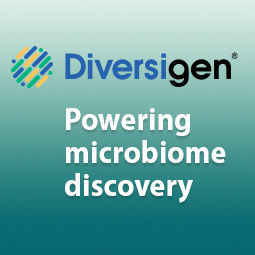
-
Microbiome services
Comprehensive microbiome and metagenomics services offered by Diversigen — from sample processing and sequencing, to bioinformatic analysis.
Diversigen offers microbial profiling for a broad range of high, medium and low microbial biomass sample types (human, animal and environmental); including the complete line of DNA Genotek’s OMNIgene® collection devices.
- Reid, Ann and Greene, Shannon. Human Microbiome FAQ. The American Academy of Microbiology. 2013.
- Reid, Ann and Greene, Shannon. Human Microbiome FAQ. The American Academy of Microbiology. 2013.
- Selkrig J, Wong P, Zhang X, Pettersson S. Metabolic tinkering by the gut microbiome: Implications for brain development and function. Gut Microbes 2014 Mar 31; 5 (3).
- Yukihiro Furusawa, Yuuki Obata, Shinji Fukuda, Takaho A. Endo, Gako Nakato, et al. Commensal microbe-derived butyrate induces the differentiation of colonic regulatory T cells. Nature, 2013 DOI: 10.1038/nature 12721.
- Gut Microbiota Worlwatch. Everything you always wanted to know about the Gut microbiota. Public Information Service from European Society of Neurogastroenterology and Motility. http://www.gutmicrobiotawatch.org/gut-microbiota-info/. Accessed June 3 2014.
- Lawrence, David A, et al. Diet rapidly and reproducibly alters the human gut microbiome. Nature. 505, 559-563. 11 December 2013.
-

-
Microbiome services
Comprehensive microbiome and metagenomics services offered by Diversigen — from sample processing and sequencing, to bioinformatic analysis.
Diversigen offers microbial profiling for a broad range of high, medium and low microbial biomass sample types (human, animal and environmental); including the complete line of DNA Genotek’s OMNIgene® collection devices.
Academic Research
Microbiome
All genetic research starts with the collection of nucleic acids.
Take a ‘snapshot’ of the in vivo state right at the moment of collection. Ensure your microbiome profiles represent the phenotype of interest, not artefacts of overgrowth or degradation.
The application of massively parallel sequencing technologies to the study of microbiology has – for the first time – enabled quantitative analysis of the presence, relative abundance and function of the microbes that live on and in us. Recent publications have demonstrated the feasibility of population-based metagenomic research, and in particular, the utility of the human microbiome as a robust biomarker of health and disease.
Considerable progress has been achieved in this area due to cost reduction of sequencing, improved data analysis methodology and the availability of reference metagenomes. However, the most significant constraint to large-scale implementation of these microbiome studies has been the availability of cost-effective and user-friendly sample collection and stabilization methods. The OMNIgene line of products from DNA Genotek has been specifically designed to alleviate this constraint.
Improving sample quality is the best way to improve data quality. Consider the cell cycle of a human (eukaryotic) cell at 24hrs, and the changes that can impact biomarkers in human tissue between collection and analysis. Now consider that the cell cycle of many microbes is on the order of 40 minutes. Without reliable sample collection and immediate stabilization to ensure accurate representation of the in vivo state, reproducibility and comparability of microbiome profiles between collection sites, or between studies would be next to impossible.
DNA Genotek’s Microbiome product line provides an all-in-one system for the non-invasive self collection and immediate stabilization of microbial nucleic acids.
DNA Genotek Product Benefits
Featured Products & Services for Research
Gut
Collect and stabilize DNA for quantitative gut microbiome profile analysis. OMNIgene•GUT is an all-in-one system for the non-invasive self-collection and stabilization of microbial DNA from feces/stool for gut microbiome profiling.
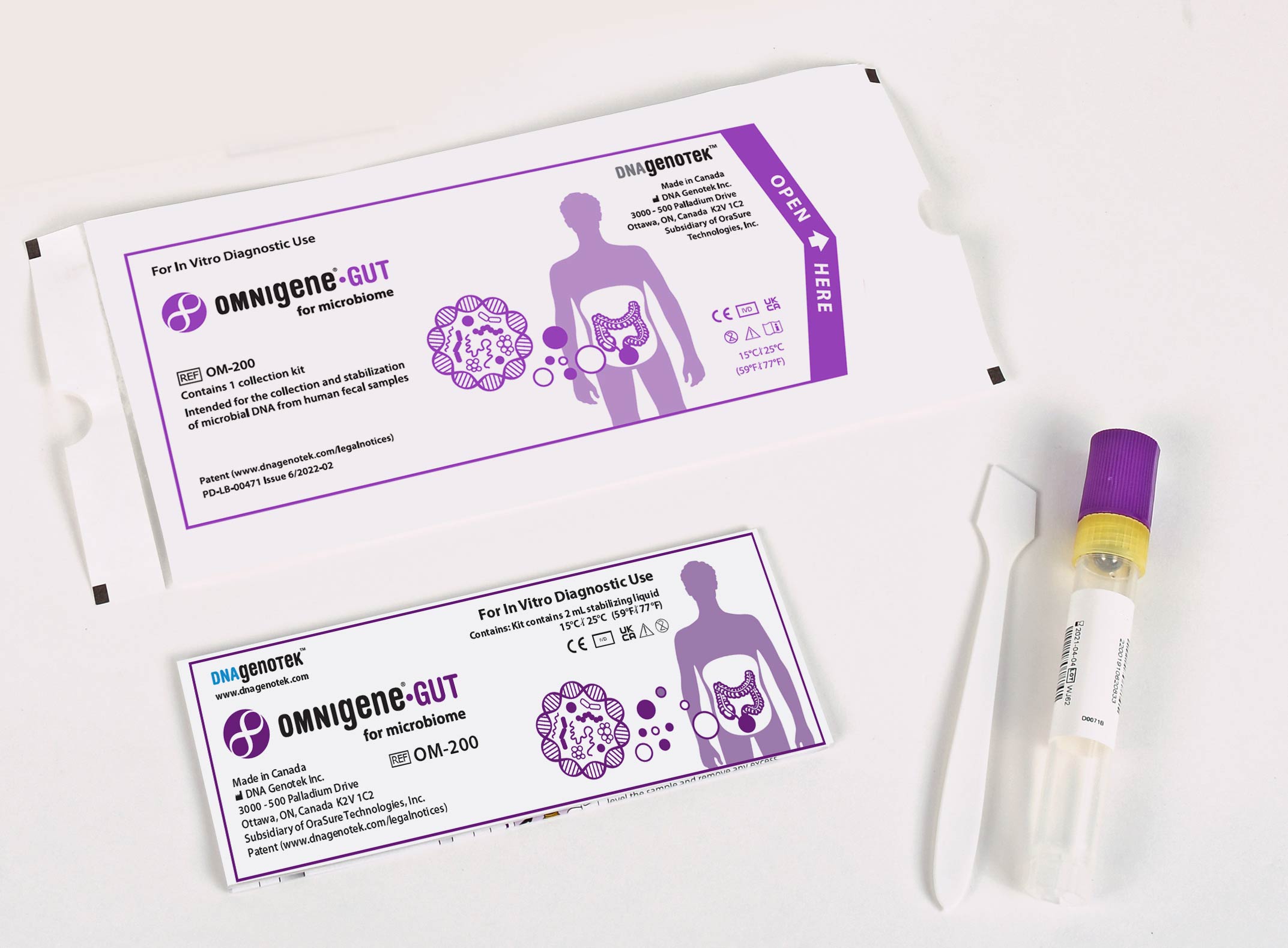

OMNIgene•GUT | OMR-200
Easy self-collection and stabilization kit for gut microbiome DNA analysis.
Products for Oral (RUO)
OMNIgene•ORAL for saliva, tongue, gum and plaque microbiome are all-in-one system for the easy self-collection and stabilization of DNA and RNA for microbiome profile analysis.
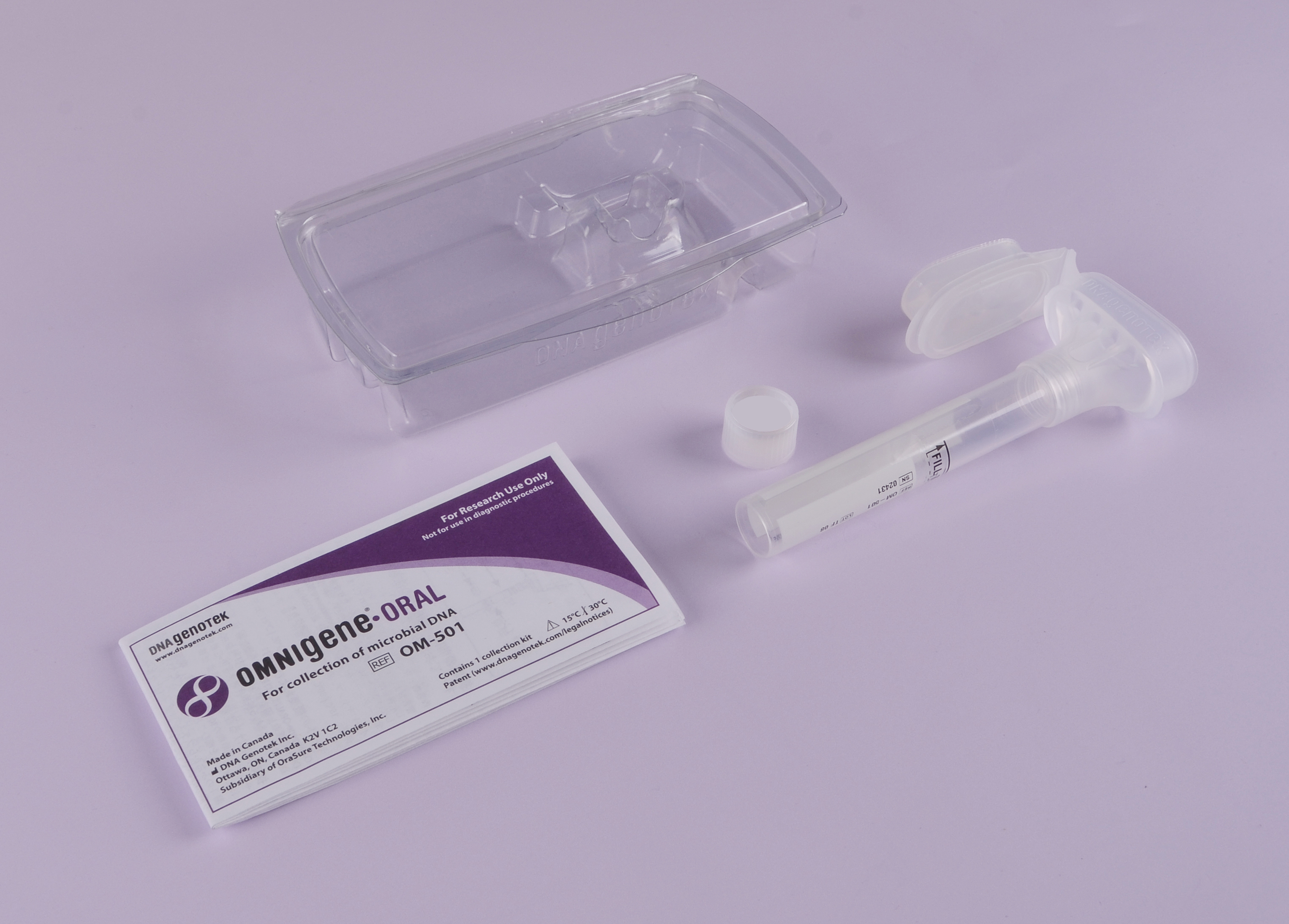

OMNIgene•ORAL | OM-501
Easy self-collection and stabilization kit for saliva microbiome DNA analysis.
OMNIgene•ORAL is for research use only, not for use in diagnostic procedures.
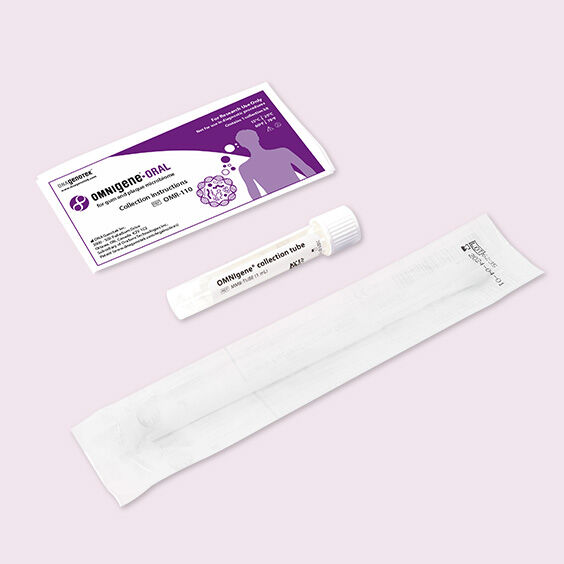

OMNIgene•ORAL | OMR-110
Easy self-collection and stabilization kit for gum and plaque microbiome DNA and RNA analysis.
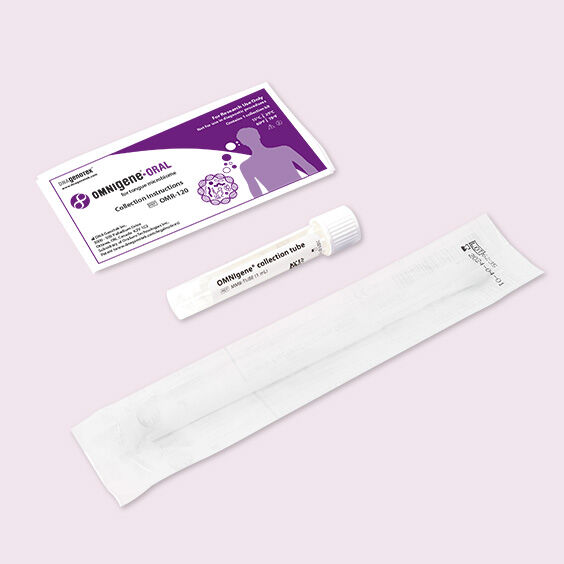

OMNIgene•ORAL | OMR-120
Easy self-collection and stabilization kit for tongue microbiome DNA and RNA analysis.
Skin
OMNIgene®•SKIN is an all-in-one system for easy self-collection and stabilization of microbial DNA from dry, wet and sebaceous skin samples for microbiome profile analysis.
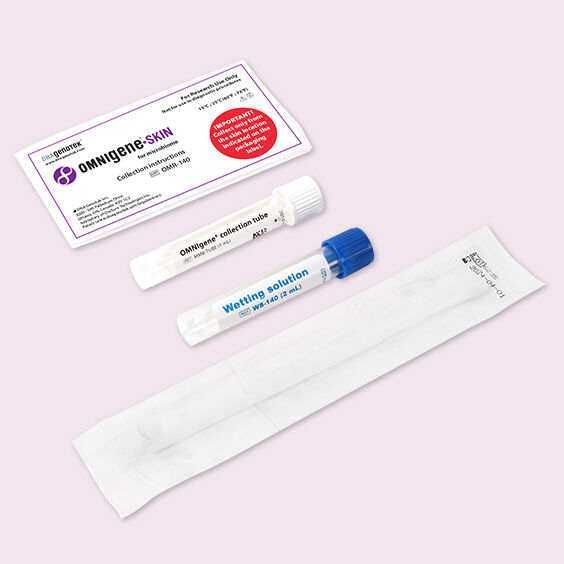

OMNIgene•SKIN | OMR-140
Easy self-collection and stabilization kit for skin microbiome DNA analysis
Vaginal
OMNIgene•VAGINAL for microbiome is an all-in-one system for the easy self-collection and stabilization of DNA and RNA for microbiome profile analysis.
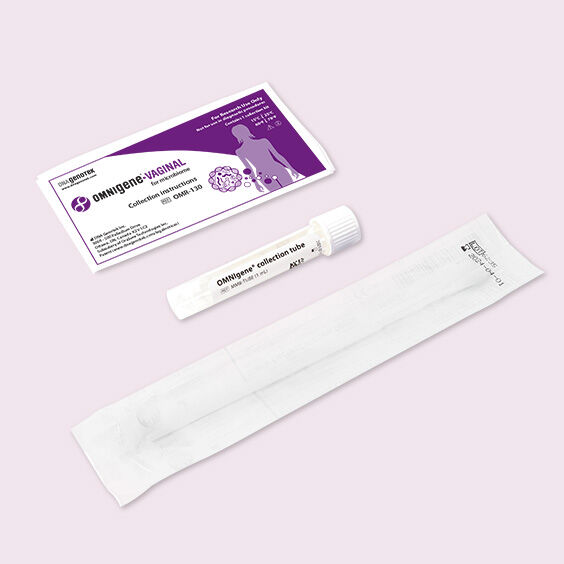

OMNIgene•VAGINAL | OMR-130
Easy self-collection and stabilization kit for vaginal microbiome DNA and RNA analysis.
Microbiome Services
Featured Services
What is the microbiome?
Learn about the microbiome.
Complete donor user instructions for this product are available here.
1. What is the gut microbiome?
A human body is made up of all kinds of different cells. Some of these cells are human cells such as skin cells or blood cells. We are also host to trillions of microscopic microbial cells which include bacteria, archaea, fungi, protists and viruses. This group of non-human cells within our bodies is referred to as the human microbiome and they have their own unique set of genes. The gut microbiome refers to the microbes living in our gastrointestinal tract. It is the largest and most diverse microbial community in the human body and scientists are discovering this community plays an important role in our health.
2. Where does it come from?
We get most of the microbes in our gut microbiome from other humans. Babies first encounter microbes through the birth canal, their mother’s skin, breast milk and other individuals who touch them. As babies grow, they encounter microbes in the environment, other people, plants and animals. We also ingest microbes from the food we eat.
3. What does the gut microbiome do?
The microbes in your gut are actually helping to keep you healthy. Your gut microbiome provides about 10% of your daily energy supply because they can breakdown things we eat that we can’t digest on our own. Your gut microbes are also responsible for producing vitamins like biotin and vitamin K and producing hormones that tell your body whether or not to store fat. They also help to support your immune system and to protect you from disease.
4. Does everyone have a similar gut microbiome?
Each person’s gut microbiome is a reflection of their diet, lifestyle, and complete social history so there can be quite a bit of variation from one person’s gut microbiome to the next. Even though over 1000 different bacterial species can be part of the gut microbiome, each of us “only” has 150 to 170 different species in our own gut microbiomes. People who are related or live together tend to have similar gut microbiomes. Over time, your gut microbiome can change if you alter your diet, take antibiotics or visit a new environment. How things like diet, lifestyle and medication change the gut microbiome is something scientists are only beginning to understand.
5. What is the relationship between the gut microbiome, health and disease?
Researchers are discovering that the gut microbiome might be an important factor in a wide range of health issues like obesity, asthma, diabetes, cancer, autoimmune disorders and heart disease. There are also indications that the gut microbiome may affect sleep patterns, mood, anxiety and other behaviors. Your gut microbiome can also affect how you respond to certain drugs. Research is deepening our understanding of the role the gut microbiome plays in many different aspects of human health.
6. Why is it important to collect a great sample to study your gut microbiome?
Researchers need to get an accurate representation of you and your microbiome. Unfortunately, your microbiome profile changes when your sample is not carefully handled and is exposed to unfavorable environmental conditions during collection and shipping. An inaccurate microbiome profile would give researchers wrong information that could result in erroneous conclusions. In order to avoid this problem, it is essential to protect your sample from the very beginning. The OMNIgene•GUT collection kit will keep your sample protected, ensuring an accurate representation of your microbiome.
Overcoming challenges in DNA sample collection.
Transport and store stabilized DNA at ambient temperature – no cold chain required.
DNA Genotek's sample collection devices and nucleic acid stabilization chemistries are protected by issued and pending patents in numerous countries around the world.
Full terms and conditions for all DNA Genotek products are available here.
Inside DNA Genotek
Legal

